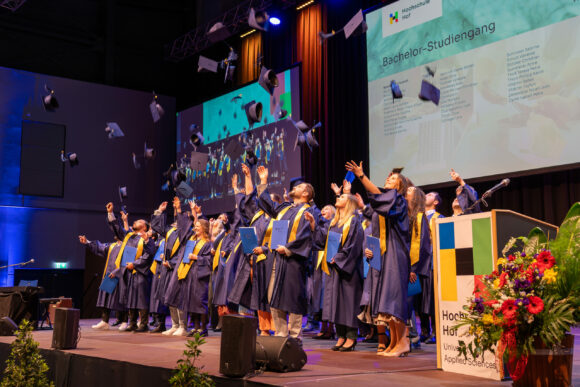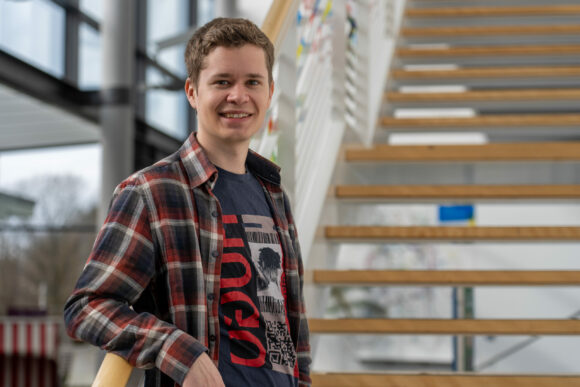In a sense, the exam period is the time of harvest for students. The same is also true in a very practical and tangible way for the participants of the course “Practical Beekeeping”, which has been offered on the campus of the university since 2019, among other things as a contribution to nature conservation: In July, the first honeycombs were covered and spun there. Course instructor Prof. Dr. Jürgen Heym reveals more about working with the busy little animals.

from left, course instructor Prof. Dr. Jürgen Heym, Marc Ruddigkeit, President Prof. Dr. Dr. h.c.. Jürgen Lehmann, Laura Kleist, Jonas Sticht, Anna-Lena Seit (missing in the picture: Agnes Schwab, Rebecca Milautzcki and Konrad Birch-Hirschfeld); Source: Hof University of Applied Sciences;
Dear Prof. Heym, how many students participated in your offer this time?
We had 8 regular participants – half students and half students. Practical Beekeeping” is a voluntary module that all students can take and for which they also receive ECTS credits. In addition, working with the bees is of course a great change from the normal university routine
And how much honey has been produced?
We have harvested about 50 kilograms so far. But we expect another 20 kilos by the beginning of August. That’s a good yield.

All the offerings were, of course, influenced by the pandemic. How difficult was it to beekeep in attendance this semester?
Due to good weather, almost all classes could be held in our outdoor bee lab. This made it very easy to comply with the distance and hygiene rules. Also, early vaccination of all participants and constant testing were, of course, the basic prerequisites for containing the dangers in the laboratory operation.
Can anyone actually do beekeeping? What to look out for?
Actually, anyone can learn to beekeep. The necessary peace of mind comes naturally when working with bees. For the specialized knowledge the experienced beekeeper friends from the university or in the association provide. With a beekeeper godmother or a beekeeper godfather everything becomes again simpler.
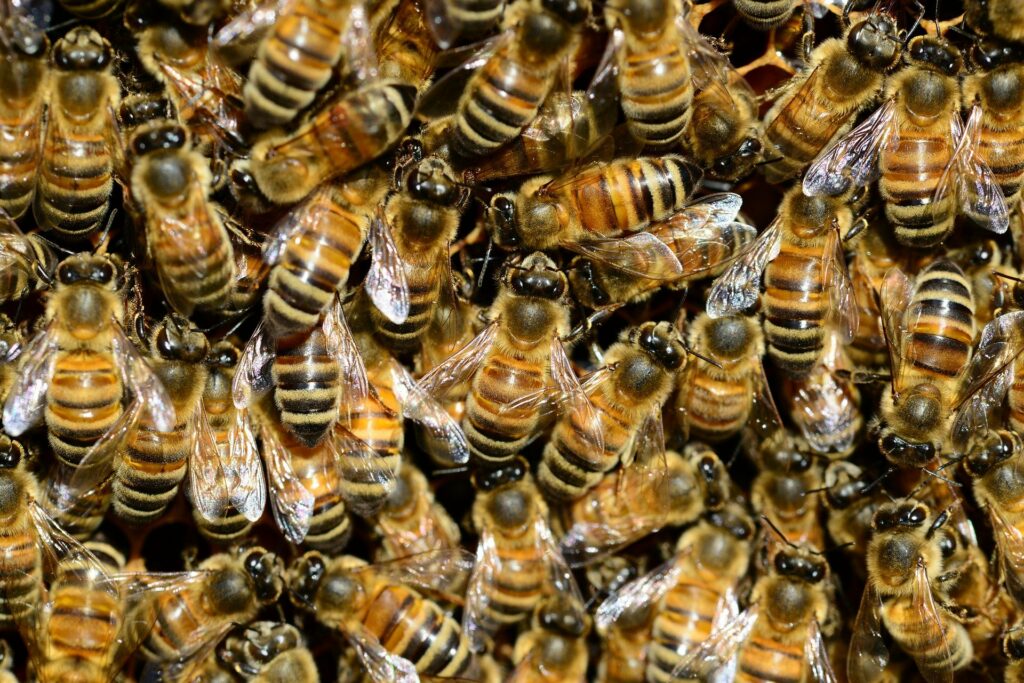
Why do we offer the course as a college?
The reasons for bees and course offerings related to bees at the university are many: first, bees are irreplaceable to our lives. As pollinators, bees are at work for all of us. The pollination service makes bees the third most important “farm animal” in Germany. Furthermore, our students in general – especially those in the environmental engineering program – have an inherently positive attitude toward bee conservation. This is also reflected in the numbers involved in the “Save the Bees” referendum. At the time, there were 1.8 million supporters, representing about 14% of the Bavarian population. In the first survey at the beginning of the semester, we had 78 people interested in the “Practical Beekeeping” course.
What are your plans for the future?
First of all, semester work and final projects are already being carried out regularly in the environment of the bee laboratory. Various measuring devices for counting bees, logging mobile phone radiation, the earth’s magnetic field and temperature measurement have been put into operation and tested. These projects are, of course, being further developed.
In addition, since the beginning of the project in 2019, we have been recording the operational data of the hives. These are the hive weight, yield and weather data at 5-minute intervals. From this, we can read, for example, the breeding activity or the swarming activity of the bee colony. Or simply whether the bees have survived the winter
The evaluation of these large amounts of data in the form of time series analyses in the field of NoSQL databases is incorporated into the lectures – Data Science & BigData send their regards.
With several students, we participate as a university project together with the city of Hof in the wild bee monitoring of the Institute for Bee Protection of the Julius Kühn Institute in Braunschweig. We have already carried out the first monitoring dates in May and June. Another one is scheduled for August. The data evaluation is planned for the fall. We will see what this inventory shows. For the next year, further data collection is planned, which should document the changes after execution of measures by the green space office of the city of Hof.
In addition, three one-day courses for student projects on the topic of wild bees are planned for September. We will see what opportunities the pandemic leaves us to bring guests to the university. Finally, we have the “Bee Science” lecture coming up again in the winter. Registration is not required for this.
Thank you for the interview!




